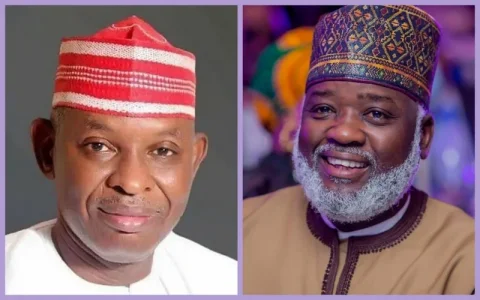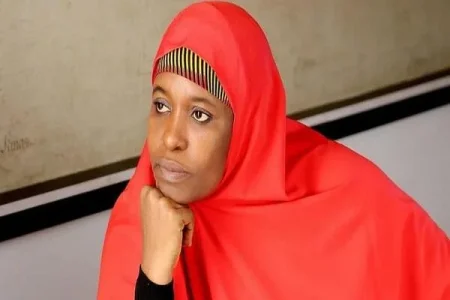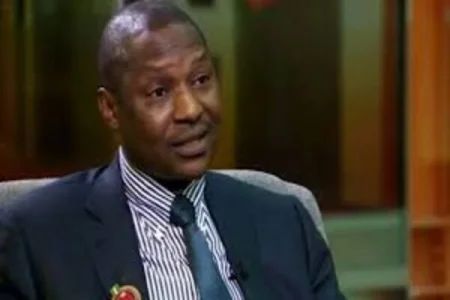
Kano, Nigeria — The Kano State Governorship Election Petition Tribunal is set to deliver its long-anticipated judgment on the contentious petition filed by the All Progressives Congress (APC) challenging the outcome of the governorship election held on March 18. Governor Abba Yusuf of the New Nigeria People Party (NNPP) emerged victorious in that election.
The tribunal, situated in the state capital of Kano, announced the judgment date, which is slated for Wednesday, September 20, marking the culmination of a legal battle that has gripped the nation's attention for months. This development follows weeks of legal proceedings and intense scrutiny.
The Independent National Electoral Commission (INEC) had initially declared that the NNPP's candidate secured 1,019,602 votes, surpassing the APC's Nasir Gawuna, who received 890,705 votes. This resulted in a victory for the NNPP candidate with a margin of 128,897 votes.
In response to this outcome, the APC filed a petition with the tribunal, disputing the results declared by INEC. The case has garnered considerable attention due to the underlying political rivalry between two prominent figures, former Governor Rabiu Kwankwaso, the leader of the NNPP, and his successor, Abdullahi Ganduje, who chairs the APC on the national level. Their once-strong political alliance has since soured, resulting in a contentious proxy war played out through this election dispute.
The APC's petition, supported by Mr. Ganduje, hinges on multiple grounds, including allegations of electoral irregularities and violations of the Electoral Act of 2022. The party has named INEC, the NNPP, and Governor Abba Yusuf as respondents in the case.
During the course of the hearings, the APC presented a total of 32 witnesses and submitted various documents, including reports from the Bimodal Voter Accreditation System (BVAS) machines, used in polling units during the election. They also introduced Forms EC8A (polling unit result sheets) and Form EC40G (overall result sheet) alongside other electoral documents obtained from INEC.
In addition to challenging the conduct of the election, the APC raised questions about Governor Yusuf's eligibility to contest, asserting that he was not a registered member of the NNPP when he entered the race. They supported this claim with an INEC-certified copy of the NNPP membership register.
In closing arguments, the APC's lawyer, Abdul Fagge, argued that the alternate membership register provided by the NNPP was updated belatedly at the ward level after the APC had filed its petition. Mr. Fagge also questioned the validity of over 270,000 ballot papers that were allegedly thumbprinted in favor of the NNPP, emphasizing that they lacked signatures, stamps, or dates.
Furthermore, Mr. Fagge contended that the simultaneous state House of Assembly elections were declared inconclusive in at least 15 constituencies, a factor that should have influenced the status of the gubernatorial election.
In response, the NNPP's lead counsel, Bashir Tudun-Wuzirchi, sought the dismissal of the APC's petition, arguing that it was a futile exercise and devoid of substance. He emphasized that the failure to include the NNPP's gubernatorial candidate, Mr. Gawuna, as a petitioner was a critical flaw in the case.
Mr. Tudun-Wuzirchi also challenged the veracity of the APC's claims, asserting that the governor's name was indeed included in the NNPP membership register as required by law. He dismissed the allegations regarding unstamped ballot papers and questioned their validity.
The high-stakes legal battle has not been confined to the courtroom alone. Reports of alleged bribery attempts involving tribunal members have emerged, leading to a public outcry and mutual accusations between the APC and NNPP factions.
In response to these developments, both parties have turned to spiritual means to influence the outcome. NNPP members have engaged in mass prayer sessions, while the rival APC faction has observed fasting and Qur'anic recitation. These spiritual gestures underscore the magnitude of this election dispute, which holds the potential to reshape Kano's political landscape and extend its influence to the national stage.
As the Kano State Governorship Election Petition Tribunal prepares to deliver its judgment, all eyes are on the outcome, which could have far-reaching implications for the state's political dynamics and the future aspirations of political heavyweights involved in this fierce battle.




